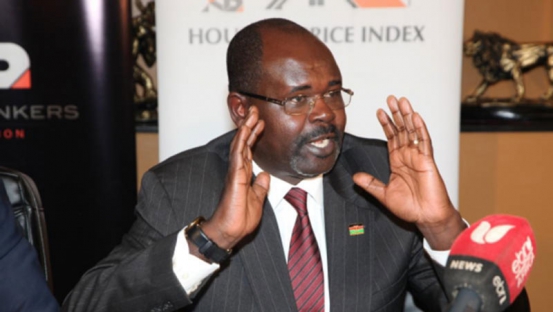It will now be tougher to transact Sh1 million and above as banks tighten rules in bid to shed off the tag of being branded conduits of corruption deals.
In a circular issued by Kenya Bankers Association (KBA) governing council to all member banks and copied to Central Bank of Kenya (CBK), some over the counter cash transactions will require customers to give a three-day written notice before being allowed to move money.
According to KBA Chief Executive Habil Olaka, the new guidelines are meant to support CBK’s circulars on money laundering to help step up efforts to curb graft through financial sector.
“The council deliberated on the need to demonstrate clear commitment to fight graft as an industry, “said Mr Olaka.
CBK already has clear guidelines and regulations on Anti-Money Laundering and Counter Financing of Terrorism (AML/CFT), the Proceeds of Crime and Anti-Money Laundering Act 2009, as well as guidelines on handling transactions above Sh1 million. “There was a need to further strengthen controls across all member banks over and above the minimum,” explained Olaka.
Under the tightened rules, any cash transactions on a single day of between Sh1 million to Sh10 million will require approval of branch manager while that between Sh10 million and Sh20 million will have to be given greenlights by regional branch manager or senior manager.
To transact over Sh20 million in cash on a single day, customers will require approval from head of branch banking or director for the transaction to be completed.
In what appears as a move to tighten loopholes of money launders moving large sums of money but in small quantities of at least Sh1 million, KBA is now going for daily limit as opposed to per-transaction rules.
“In addition, for cash transactions above Sh10 million, the branch manager should request the customer to give a three-day written notice of the intention to transact,” said Mr Olaka in the circular.
Customers will have to explain sources of their money, supported with evidence, before deposits are made. For withdrawal, they will have to explain reason for drawing out the money and why Real Time Gross Settlement (RTGS) cannot be used.
Customers will also have to give copies of their identity cards to banks as well as copies of IDs of all the people who will receive the huge amount of money being withdrawn.
